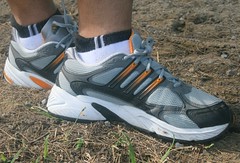REGULATION OF BLOOD GLUCOSE CONCENTRATION
What happens if the glucose concentration in the blood increases?
- After having a meal, the glucose concentration in the blood increases (stimulus).
- This increase may caused cells in the body to undergo crenation. For example, the red blood cells in the blood may undergo crenation due to higher water potential in the red blood cells than the blood itself. As a result water molecules in the red blood cells diffuse out of the red blood cells by osmosis.
- This condition needs to be corrected. Because of this increase, the pancreas will secrete insulin into the blood (insulin is a hormone produced by the beta-cells of the islets of langerhans of the pancreas).
- The blood will then transports the insulin to the liver (target organ).
- In the liver, the excess glucose is then converted into glycogen for storage in the liver itself as well as in the muscles.
- This conversion of excess glucose to glycogen slowly lowers the blood glucose concentration (negative feedback).
- Eventually the glucose concentration in the blood will return to normal (Norm).
What happens if the glucose concentration in the blood decreases?
- After vigorous exercise, the glucose concentration in the blood decreases due to glucose being oxidised to release energy during cellular respiration (stimulus)
- The decreased may caused the red blood cells to haemolyse. Haemolysis occurs due to passage of water molecules into the red blood cells from the blood from higher to lower water potential by osmosis.
- This condition needs to be corrected. The pancreas responds to this by producing glucagon into the blood (Glucagon is a hormone produced by the alpha cells of the islets of langerhans of the pancreas).
- The glucagon is then transported by the blood to the liver which is the target organ.
- In the liver, the glucagon converts glycogen stored in the liver into glucose.
- This will boost the blood glucose concentration in the blood (negative feedback)
- Eventually the blood glucose concentration will return to normal.
Note: Before the insulin and the glucagon can be secreted into the blood, the pancreas must first be triggered or stimulated by the pituitary gland in the brain (Remember: Pituitary gland is a MASTER gland of all the endocrine glands. It controls the activities of other endocrine glands)
